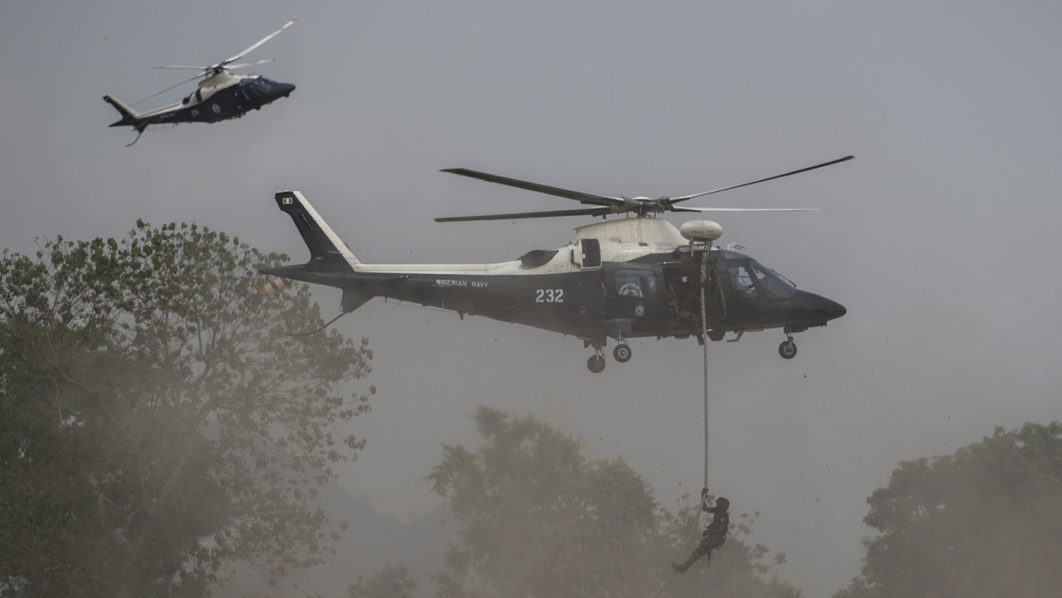
Buhari will be first African president to visit Trump
The United States Government will deliver 12 Tucano A-29 ground attack aircraft to Nigeria in 2020 after the Federal Government concluded payment of about N153 billion ($500 million) in January this year.
A top U.S. government official confirmed this in a chat with The Guardian and a few others in Lagos at the weekend, saying that “the conversation began during the previous administration’ but that the “planes have not been fully built.” According to the official, the warplanes are being assembled and will be delivered from Florida before the end of 2020.
The Nigerian military in response to a query on the matter yesterday also confirmed the arrangement, saying, “It could take more than a year for the jets to be delivered to Nigeria. Fighter jets and aircraft are not picked off the shelf; normally, it is after a contract would have been signed and money released that they start manufacturing the aircraft,” said military spokesman Olatokunbo Adesanya. “It is unlikely that we would even have them in one year.” Adesanya, an Air Vice Marshal and Director, Public Relations and Information at the Nigeria Armed Forces (NAF) headquarters also confirmed that Nigerian government had made full payment to the United States government for the war jets.
“I cannot really tell you the exact amount paid by the Nigerian government, but the 12 Tucano war planes cost between $400 million and $500 million,” a U.S. official said on Friday.The Federal government had requested the National Assembly to approve a $1billion loan for anti-terror war. Minister of Information and Culture, Alhaji Lai Mohammed was quoted as saying that part of the money was needed to procure military equipment, including purchase of Tucano warplanes.
Defence Minister Mansur Ali few weeks ago reportedly disclosed that President Muhammadu Buhari had approved $1billion in new expenditure for arms and other equipment for the country’s security agencies. Presidential aide Ita Enang subsequently denied that the president ever gave such approval without recourse to the National Assembly. Enang’s rebuttal followed public outrage culminating in Senate President Bukola Saraki saying that senators were angry over the alleged approval.
“Just few days ago, the issue of providing funding for the purchase of security equipment was in the news,’ President of the Senate said at a retreat for lawmakers in Jos on April 7. “In a good environment, such an issue needed to have been discussed with lawmakers.”
Made by Brazil’s Embraer, Tucano A-29 is an agile, propeller-driven plane with reconnaissance, surveillance and attack capabilities. The U.S. had in April 2017 reportedly agreed to sell high-tech aircraft to Nigeria to tackle insurgency in the northeast but two of the country’s top government officials craving anonymity last Friday told The Guardian that the conversation actually started during the tenure of Goodluck Jonathan as President. Some officials had told Associate Press that the Congress would get formal notification ‘within weeks” to set off an arms sale deal that would see Nigeria buy about 12 Embraer A-29 Super Tucano aircraft with advanced targeting gear.
There were reports few years ago about the US blocking Nigeria from getting the ground attack aircraft based on allegations of human rights violations within the military. The Leahy Law prohibits the U.S. Defence from offering military assistance to countries involved in abuse of human rights. However, U.S. relaxed the embargo in August 2015 after Congressman Darrel Isah met with security chiefs.
According to the U.S. official who is also conversant with the country’s military operations, the sale represents part of U.S’ military collaboration with Nigeria. The Guardian reliably gathered that President Donald Trump’s administration is “excited” about Buhari’s proposed visit to the White House in Washington DC on April 30 because “it will be the first official visit by an African head of state” under the Trump government. Buhari’s proposed visit, according to the U.S. government official, “will be the deepening of ongoing partnership in security,” and other issues bordering on Africa, especially the Lake Chad Basin, as well as economy and regional trade.
“President Buhari’s visit is an opportunity to help Americans understand how important Nigeria and Africa are. Nigeria will be the third most populous city in the world by 2050. Former Secretary of State was in Nigeria, but this official visit is more important because it is in Washington DC, to help Americans understand better.”
The source further explained that the U.S. would continue to engage Africa on issues of governance as one of the pillars of its policy on the continent. “If there is no sufficient government services provided, it can breed conflicts. Trump wrote former African Union President, Alpha Conde of the Republic of Guinea and copied to every head of state to prove his respect and commitment to Africa.”
On ethnic and religious conflicts in Nigeria, the official said the US would want the Nigerian government to dialogue with its aggrieved people. “We have a consistent record of encouraging dialogue,” the source said, while describing the Indigenous People of Biafra (IPOB) as a group of aggrieved people who see themselves as disenfranchised and marginalised. “We want government to engage them.”
[ad unit=2]






